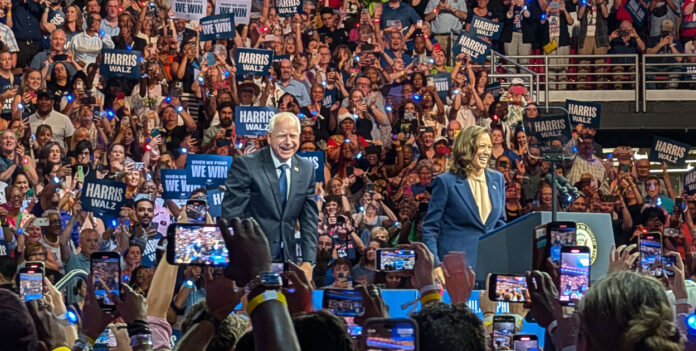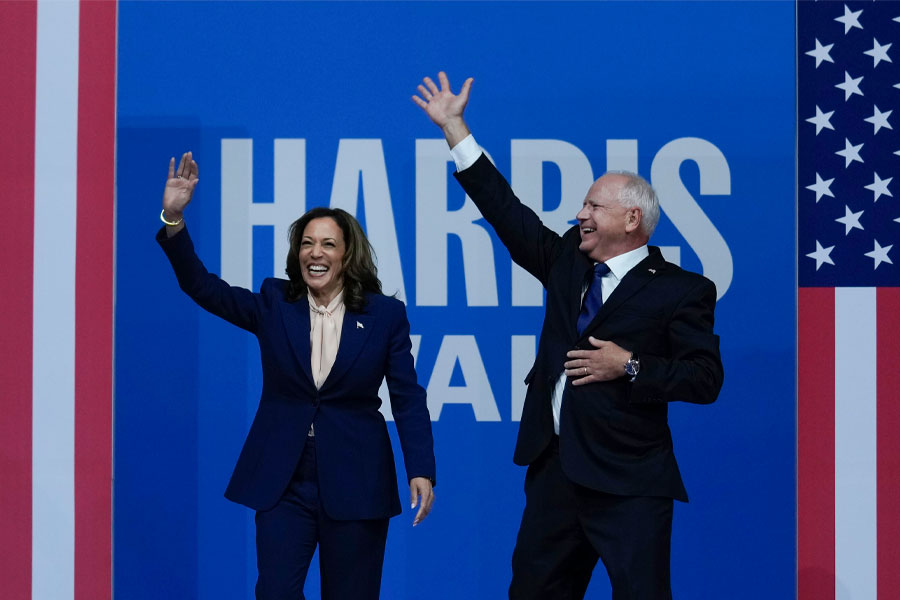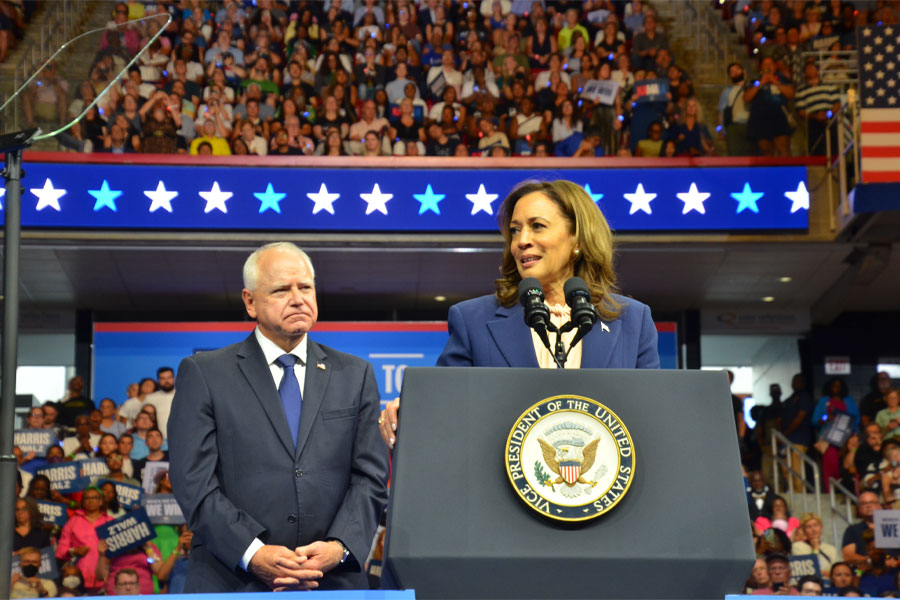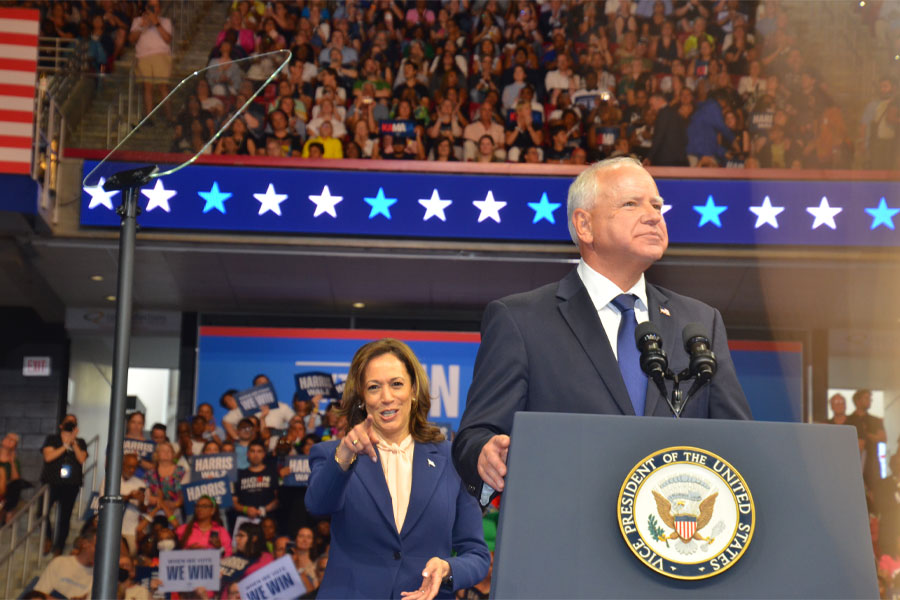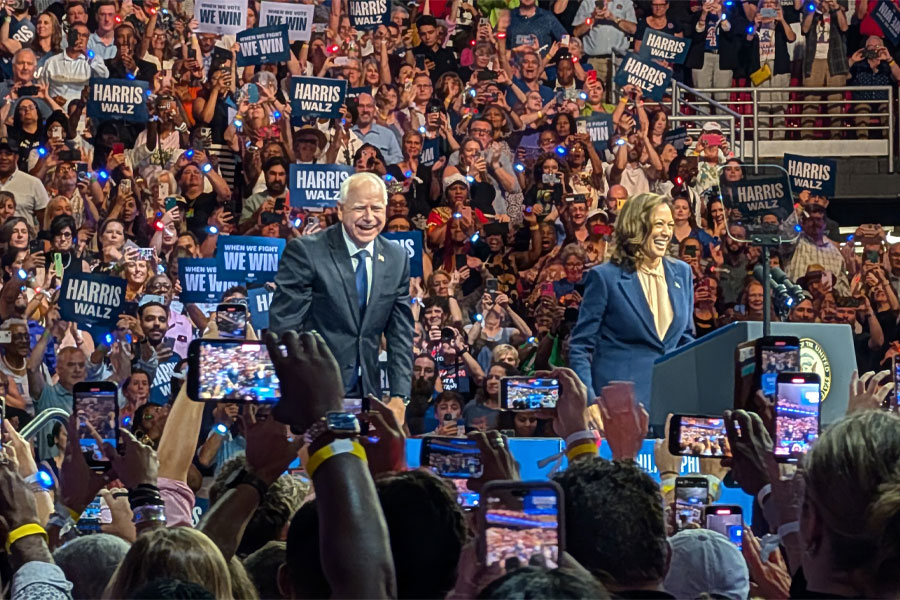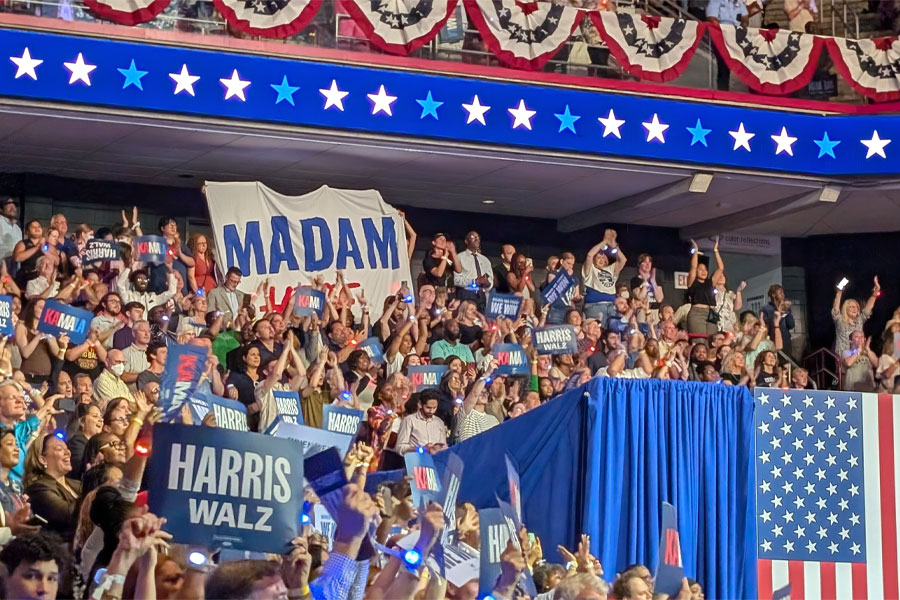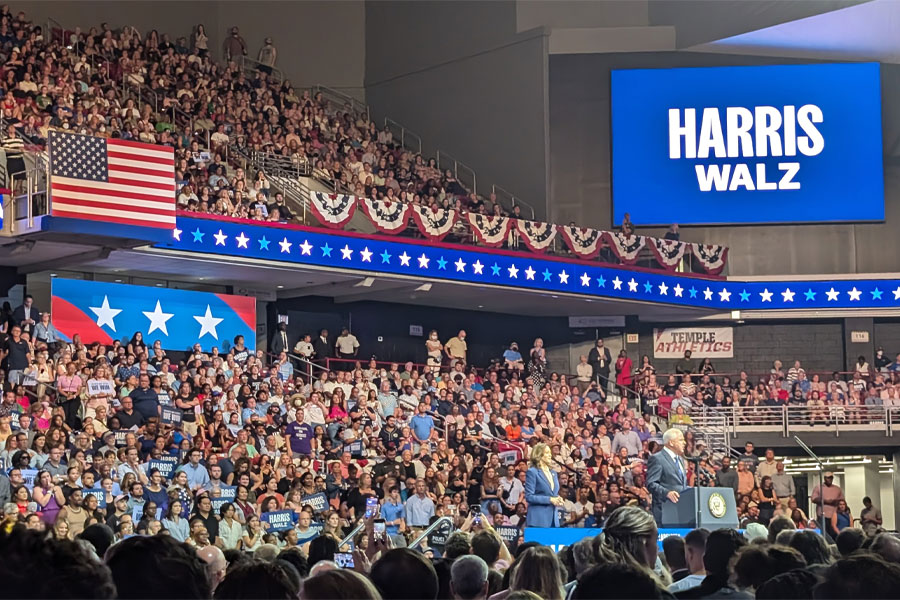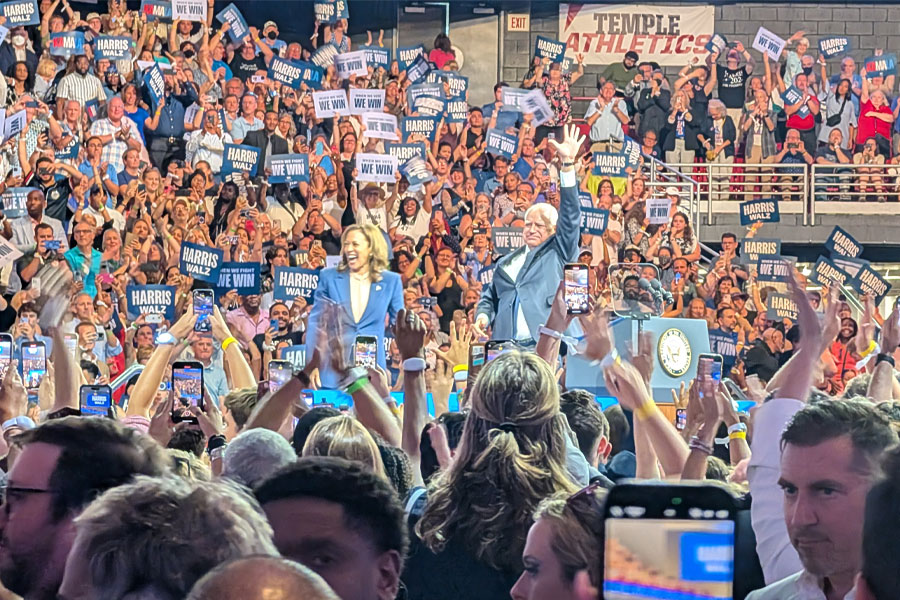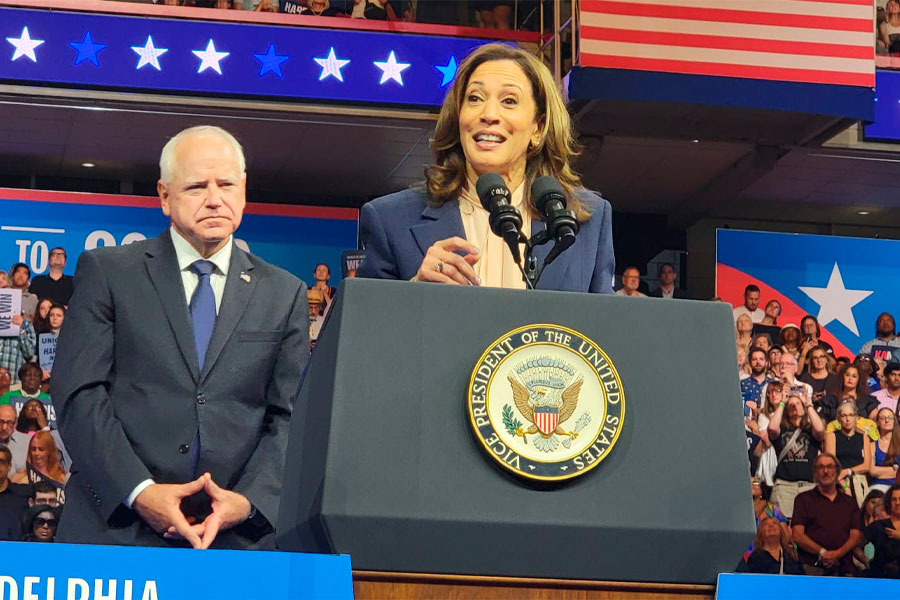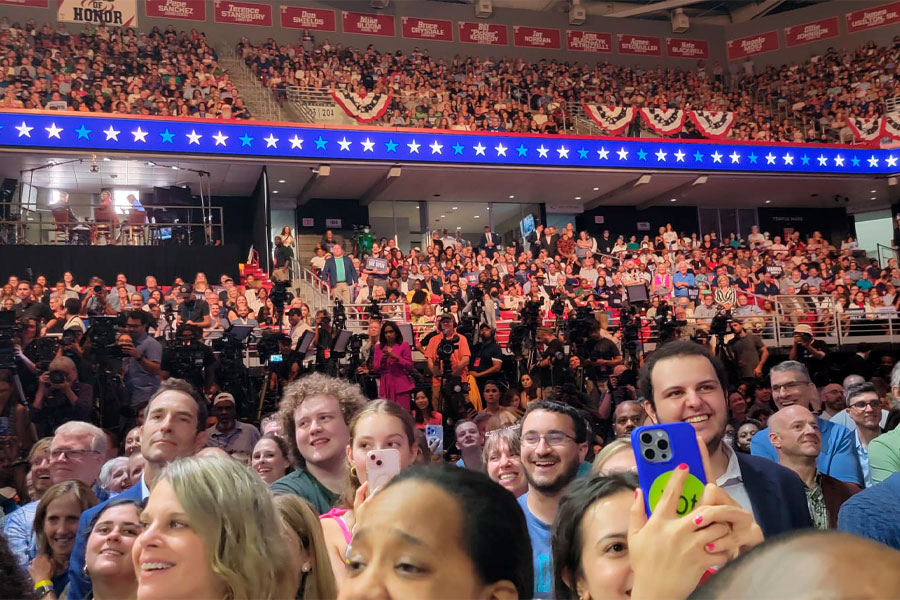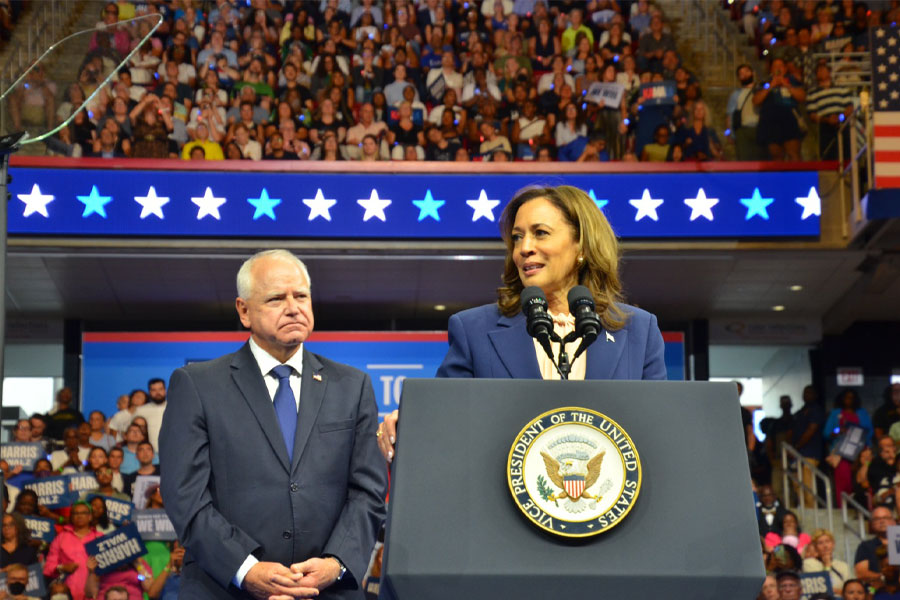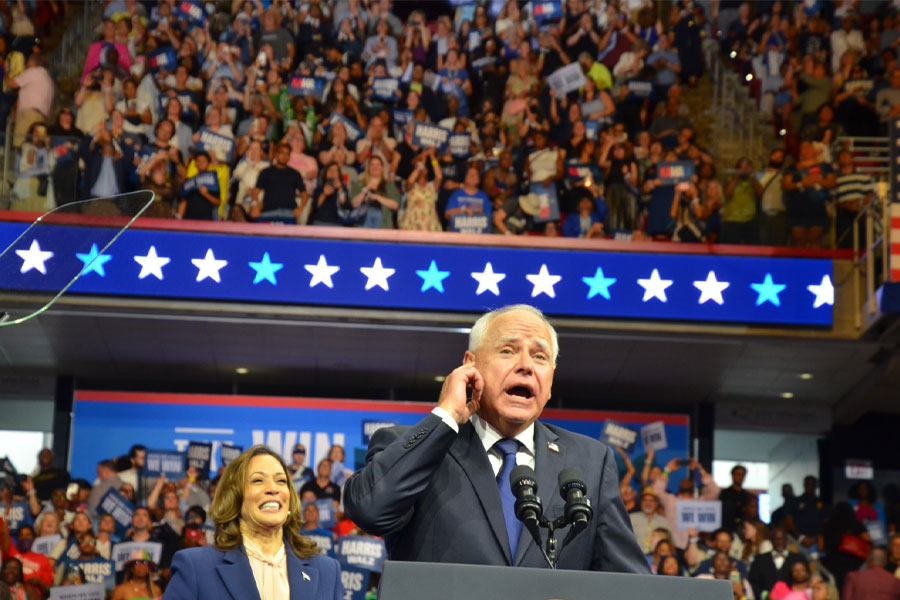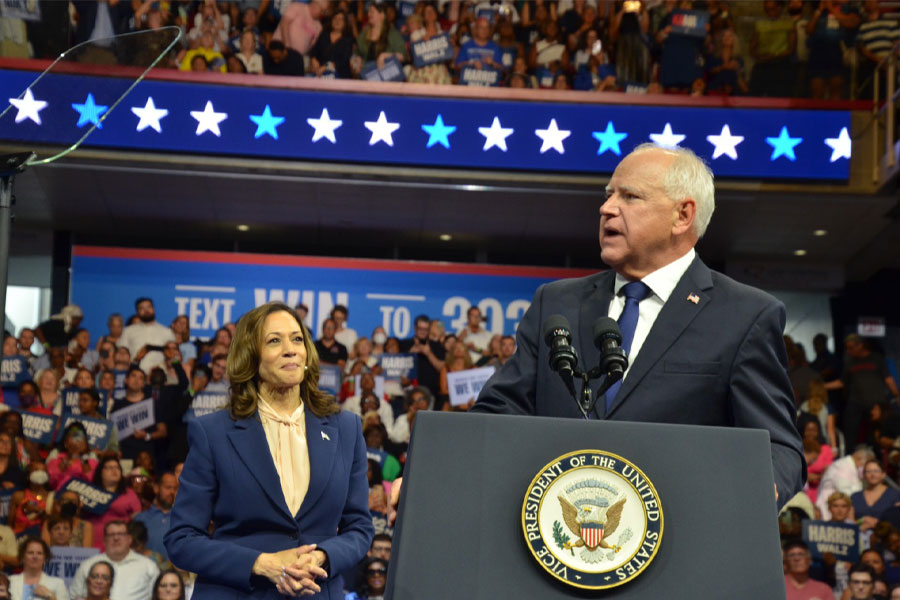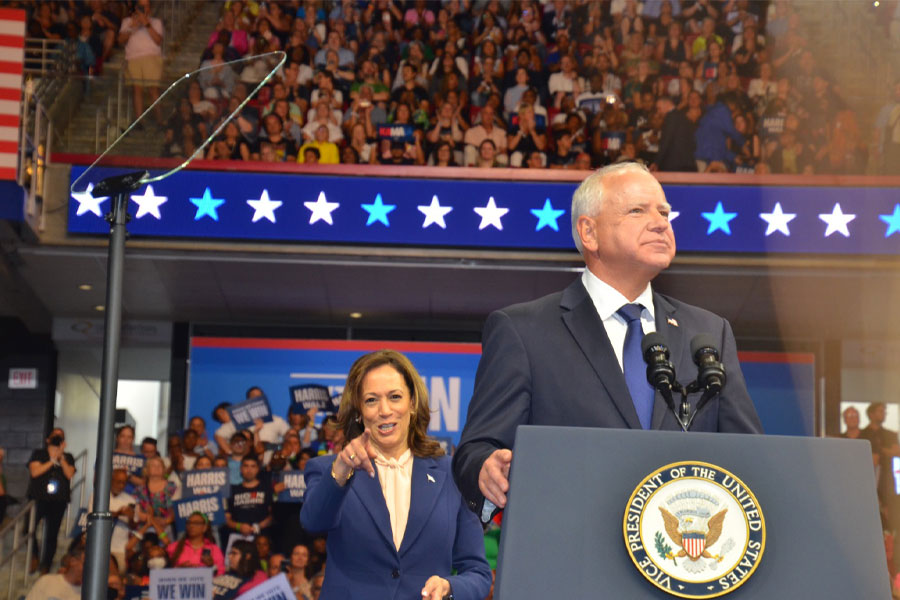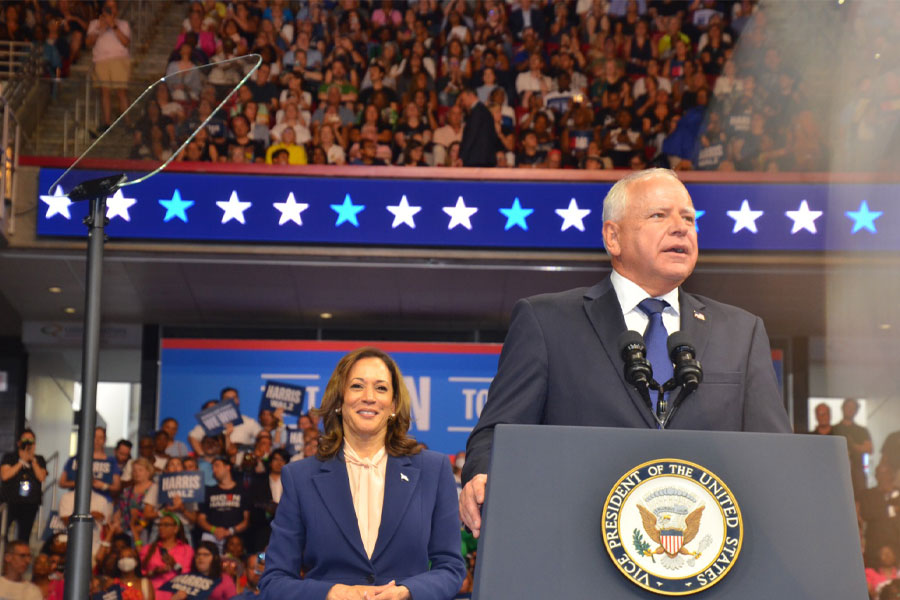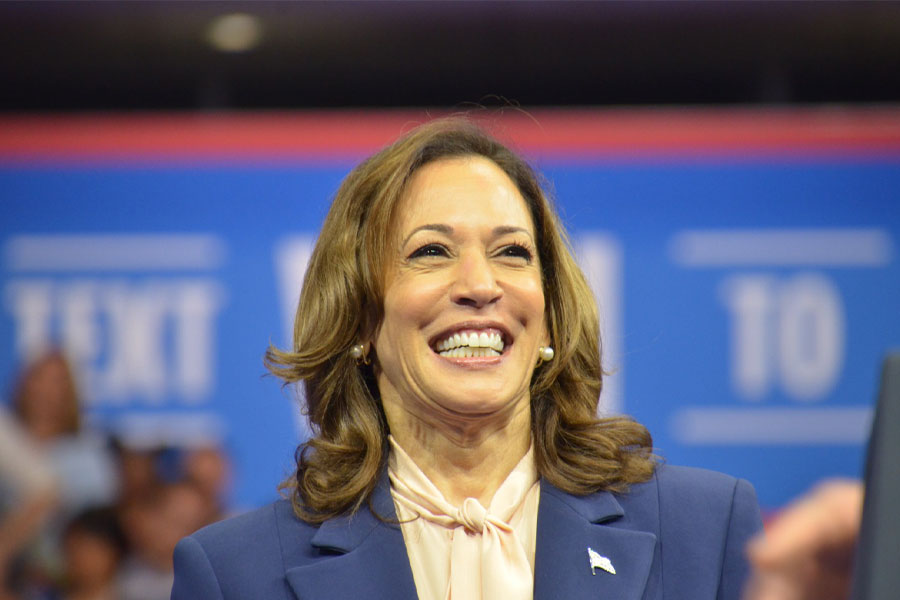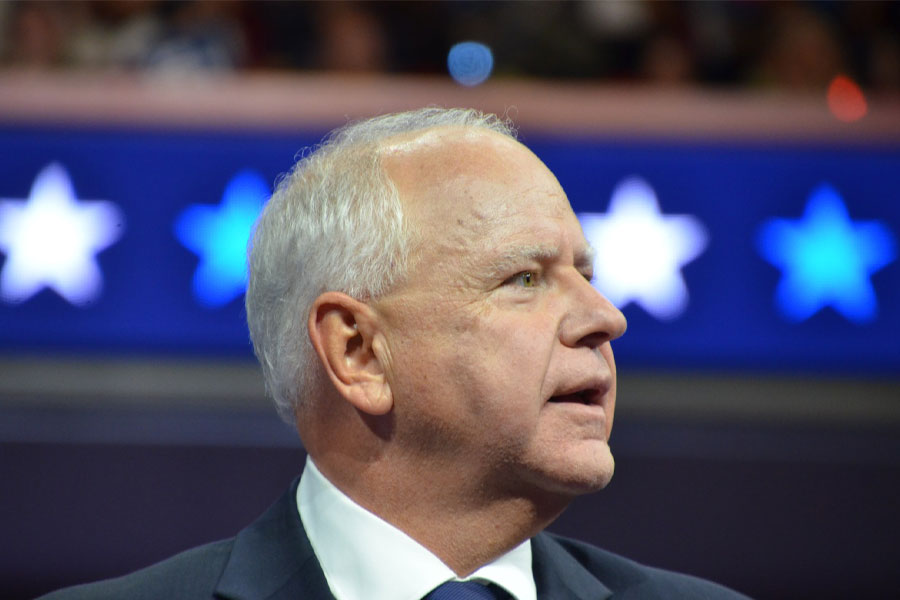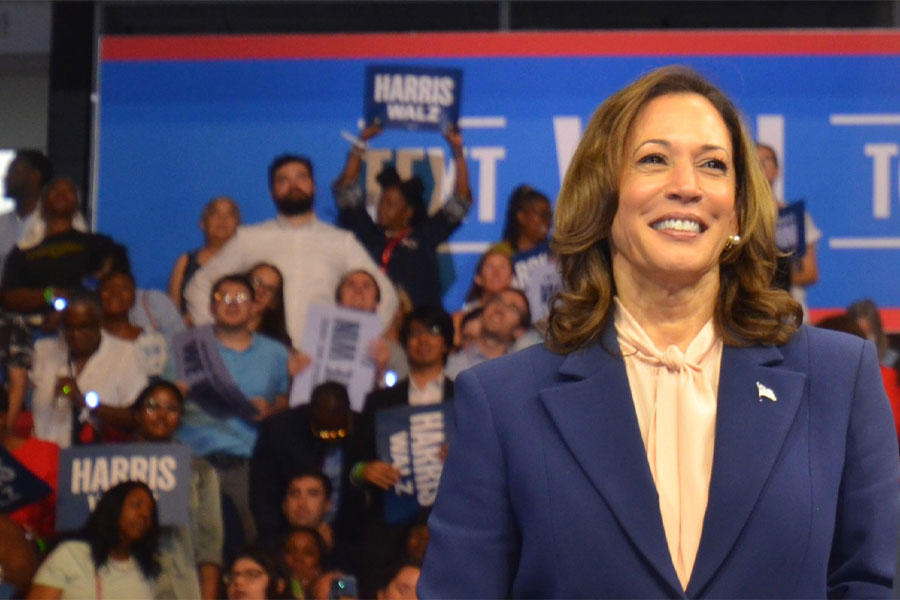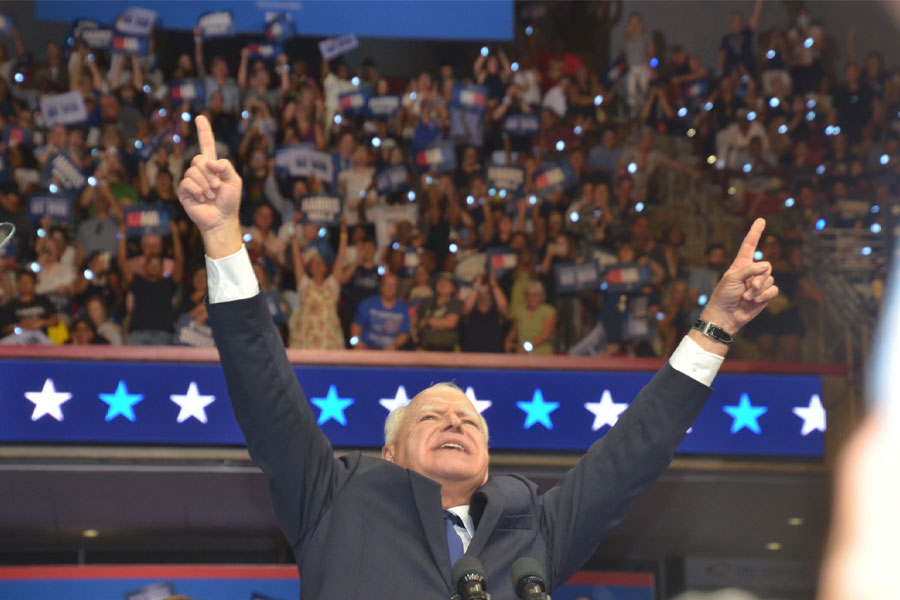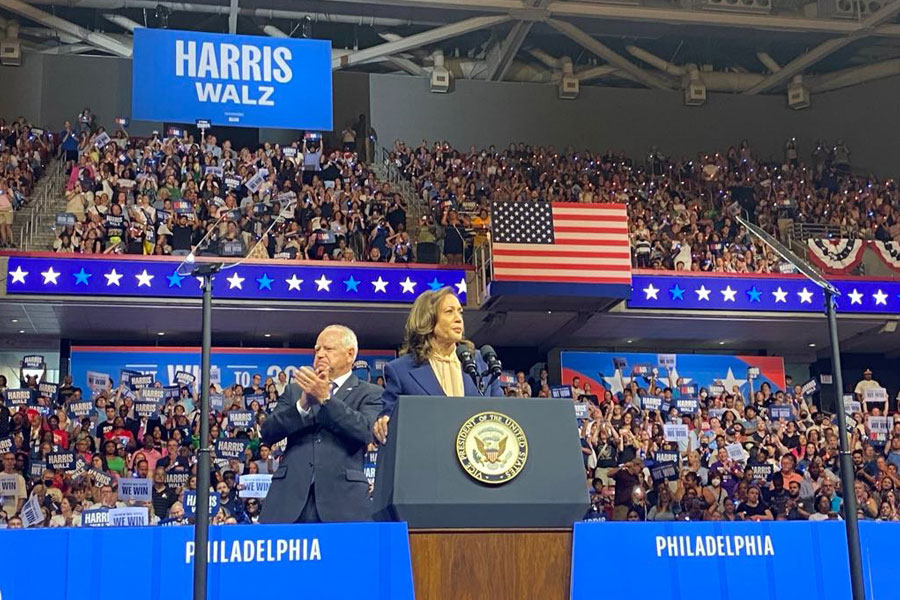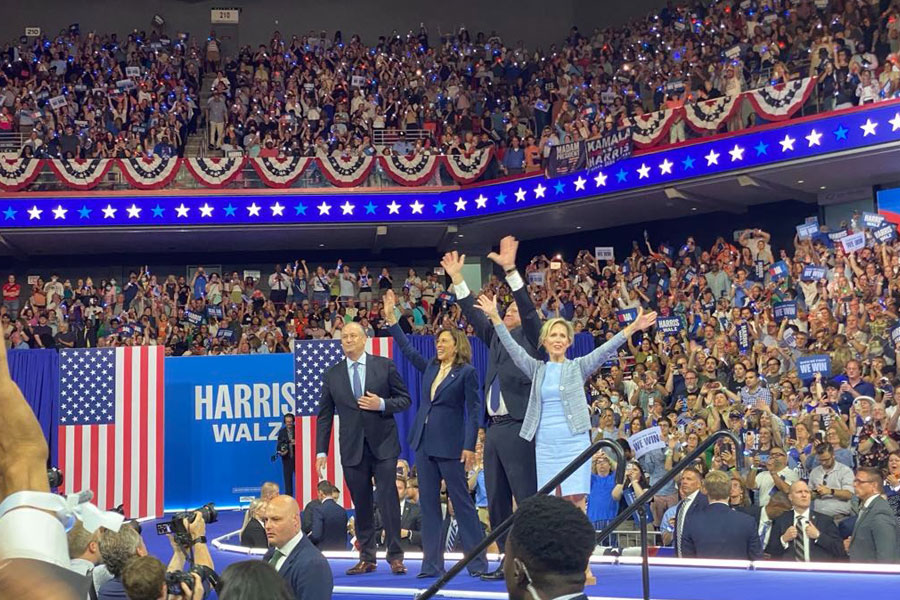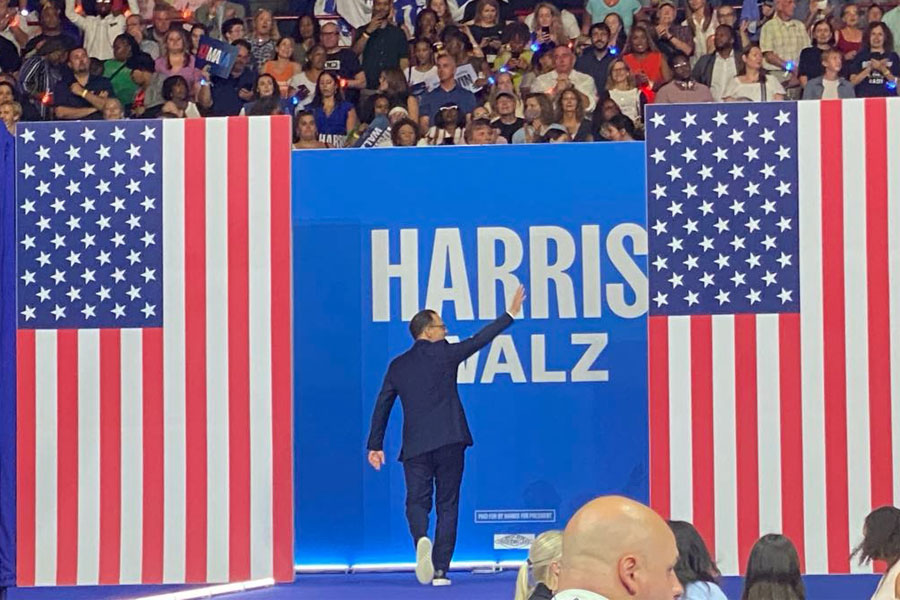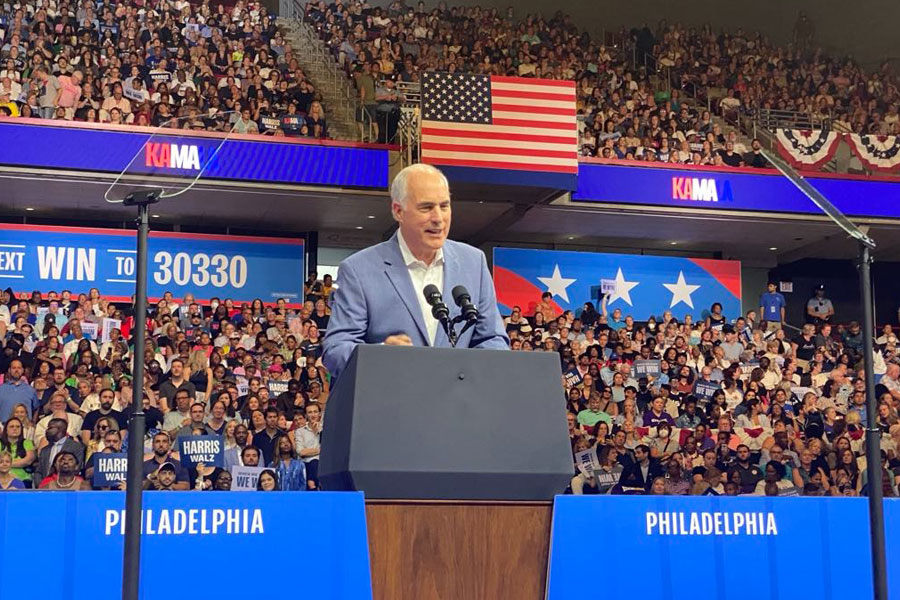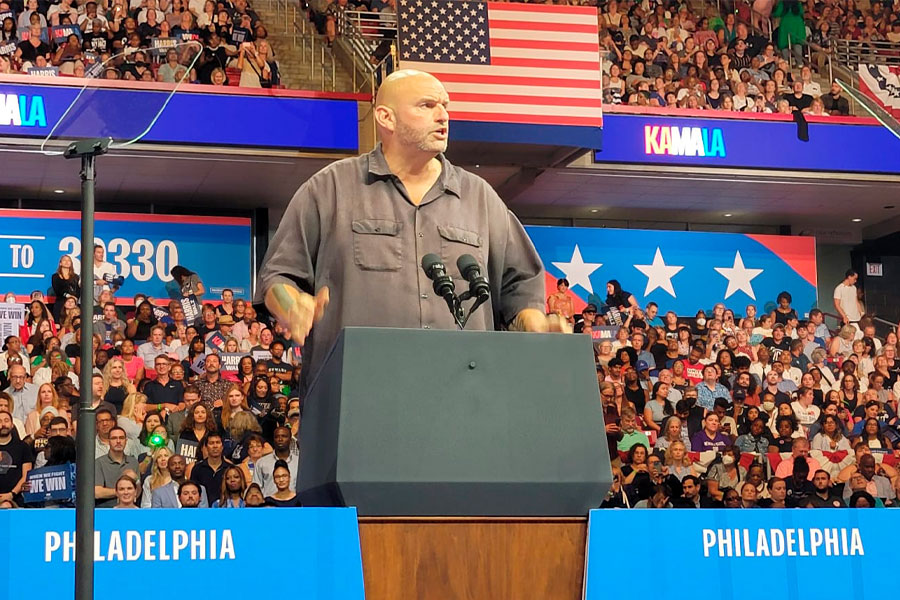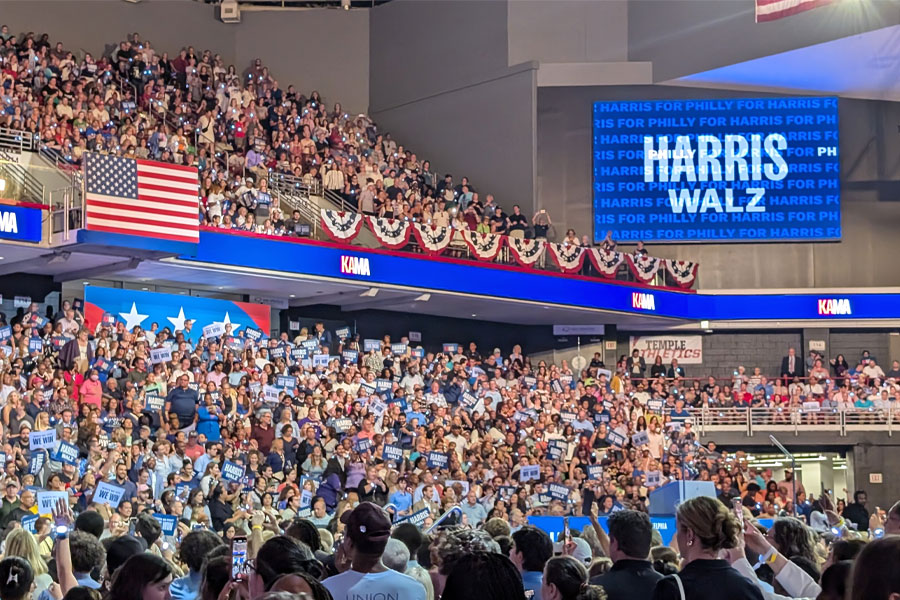The atmosphere at Temple University’s Liacouras Center on Tuesday evening resembled the excitement of a Taylor Swift concert more than a typical political rally. Spectators, many of whom were young and college-aged, wore flashing LED bracelets, adding to the concert-like ambiance. This spectacle marked the official debut of Minnesota Governor Tim Walz as Kamala Harris’s choice for Democratic Vice-Presidential candidate. For the first time since Joe Biden suspended his presidential campaign, the nation now has two competing formulas for the U.S. Presidency.
With a star-studded lineup of Democratic officials, Walz was introduced as Harris’s running mate in Philadelphia. This represents Harris’s first major decision as the Democratic nominee for President, and one that her advisers hope will help her become the first woman and person of color to occupy the Oval Office.
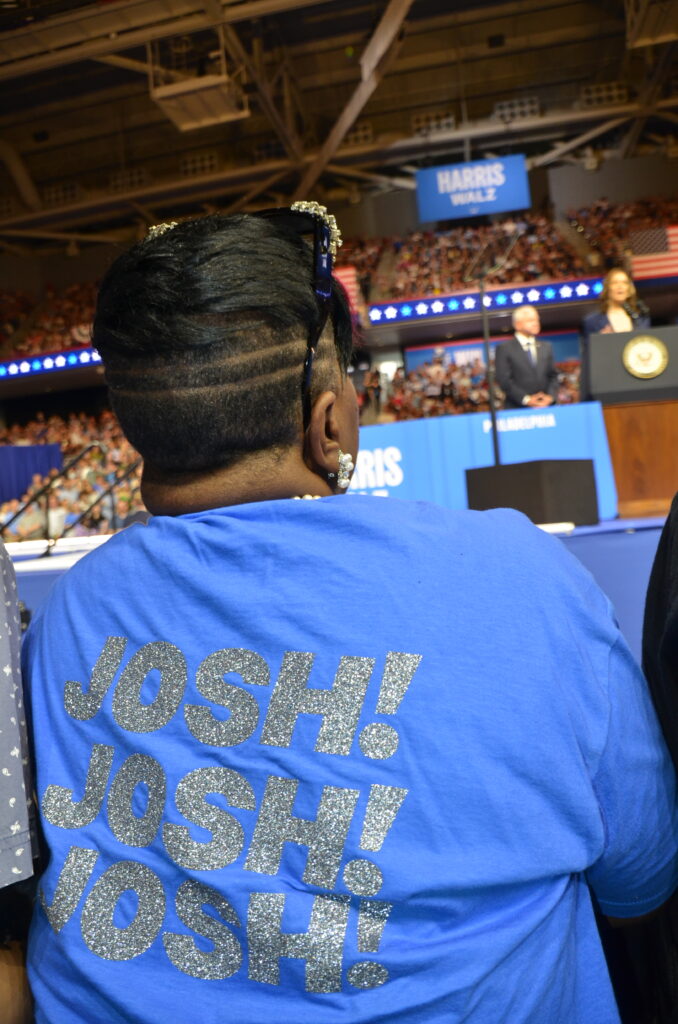
Since the presidential debate in late June between Donald Trump and President Joe Biden, the Democratic Party has undergone significant changes. Harris, who was previously Biden’s running mate, has stepped into the role of party nominee. As Vice President, the administration has touted the record of the “Biden-Harris” campaign and has given the Vice President multiple policy roles to oversee, many with somewhat mixed results given her very limited constitutional authority in her current role.
In Philadelphia, Kamala Harris completed her ticket with a choice that had been outside recent speculation. Initially, Tim Walz was not a frontrunner for Harris’s running mate. Although not without supporters, other prominent figures, such as Arizona Senator Mark Kelly and Pennsylvania Governor Josh Shapiro, were considered stronger candidates. Over the weekend, rumors emerged that Kelly was no longer in contention, and by Monday night, it appeared Harris would choose Shapiro. However, Walz’s selection surprised many.
There are reasons why Harris and Shapiro may have mutually agreed that it was best for the governor to remain in Harrisburg and continue campaigning in the state—reasons that may never be fully known. Shapiro was met with thunderous applause for several minutes, during which he loudly proclaimed, “I love you, Philly! And you know what else I love? Being your governor!” It was clear to everyone present that Shapiro was not leaving, and his presence at the rally reinforced the message of Democratic unity that the Harris-Walz campaign aims to broadcast.
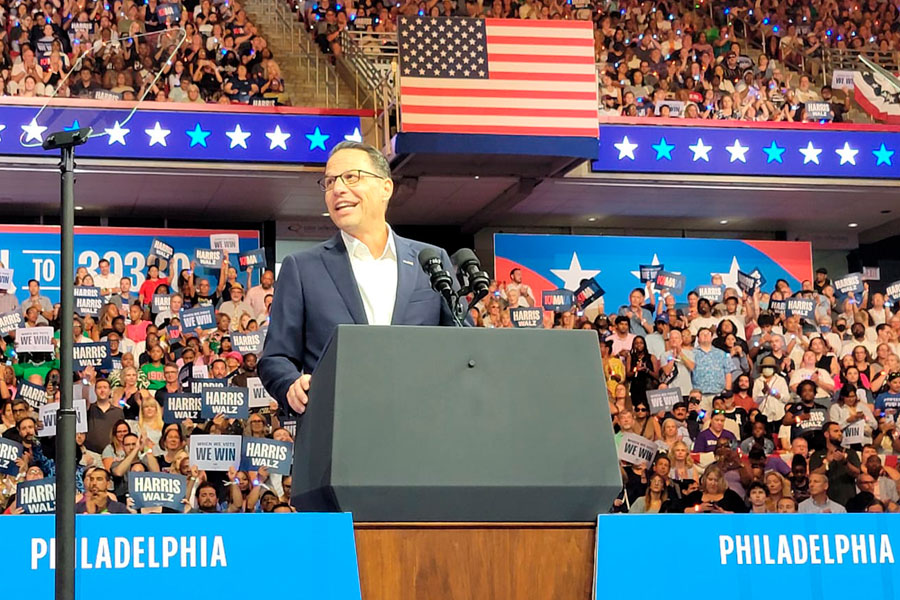
In what appeared to be a response to critics or perhaps even supporters who questioned his selection, Shapiro addressed the crowd: “My faith teaches me that no one is required to complete the task, but neither are we free to refrain from it. That means each of us has a responsibility to get off the sidelines, to get in the game, and to do our part.” He concluded his defense of his faith by stating, “I am proud of my faith. I lean on my family, and I lean on my faith, which calls me to serve.”
Shapiro was highly supportive of Walz as the choice for Vice President, stating, “Tim Walz is a great man… an outstanding governor… a teacher… a guardsman. Tim Walz is a great patriot.” The decision to exclude a governor from a key swing state from the Democratic ticket remains a point of debate, and it is uncertain whether this choice will achieve the desired outcome for Harris on November 5th.
Mark Kelly, another potential Vice Presidential candidate, seemed to fall off the list for the Harris campaign by Sunday. Although his background as an astronaut and Senator from a swing state was considered as a counterbalance to concerns about Harris being too liberal, the Senator from Arizona was ultimately overlooked.
The Harris campaign appears to have strategically decided to minimize discussion on immigration. With Mark Kelly no longer a candidate, issues such as immigration reform, southern border restrictions, and funding increases for Border Patrol agents and immigration judges may also be omitted from the campaign’s focus. Democrats have regularly examined polls showing vulnerabilities among voters on immigration and border issues. The strategy of remaining silent on these issues and failing to substantiate the benefits of immigration with facts could potentially backfire, affecting not only Latino voters.
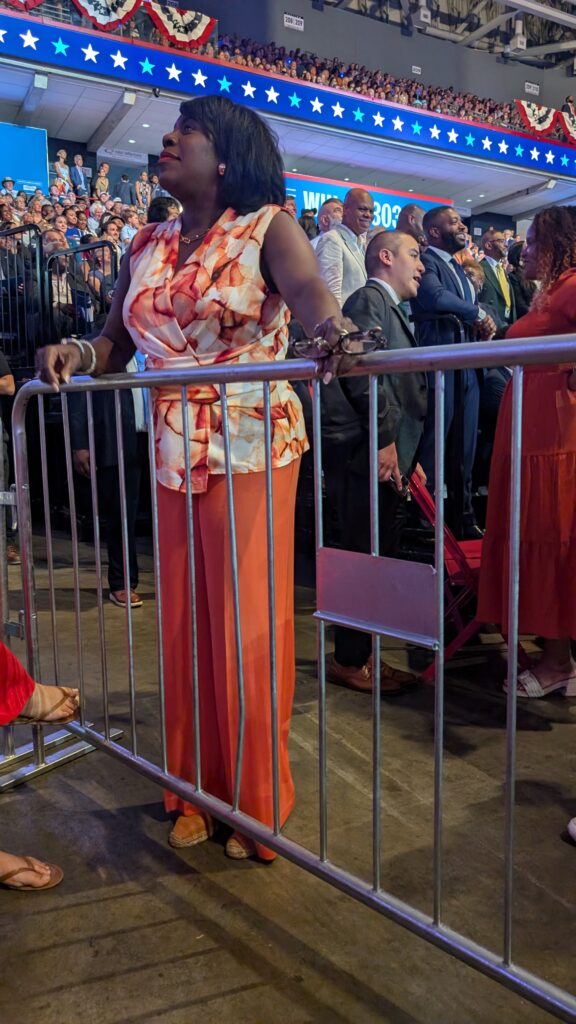
After hearing speeches from Philadelphia Mayor Cherrelle Parker, Pennsylvania Senators Bob Casey and John Fetterman, and Pennsylvania Governor Josh Shapiro, the packed crowd of around 14,000 grew increasingly energized with each address. Among the attendees was DNC Chair Jaime Harrison, who, when asked about Walz’s role on the ticket, replied, “I’ve known Tim Walz for almost 20 years. He’s an amazing guy. He’s a great complement to the Vice President.”
By the end of the night, the Democratic nominees for President and Vice President took the stage to thunderous applause. The two candidates appeared together, holding hands, sharing laughs, and waving to the audience. Kamala Harris spoke first, introducing Tim Walz as her running mate for the first time. She highlighted many of Walz’s accomplishments:
“Tim is more than a governor. To his wife, Gwen, he is a husband. To his kids, Hope and Gus, he is a dad. To his fellow veterans, he is Sergeant Major Walz. To the people of Southern Minnesota, for 12 years, he was a congressman. To his former high school students, he was Mr. Walz. And to his former high school football players, he was a coach. And in 91 days the nation will know coach Walz by another name: Vice President of the United States.”
This choice reflects the Harris campaign’s strategy of presenting a Midwestern progressive with a solid governing record in Minnesota. Walz’s “strong dad” persona is intended to resonate with voters who might be disillusioned by perceived weaknesses in Harris and, previously, Biden. Additionally, Walz embodies the “happy warrior” attack-dog personality expected of a vice-presidential candidate. Referring to his Midwestern roots, Walz stated, “Those are the same values I learned on the family farm and tried to instill in my students. I took it to Congress and to the state capitol, and now Vice President Harris and I are running to take those very values to the White House.”
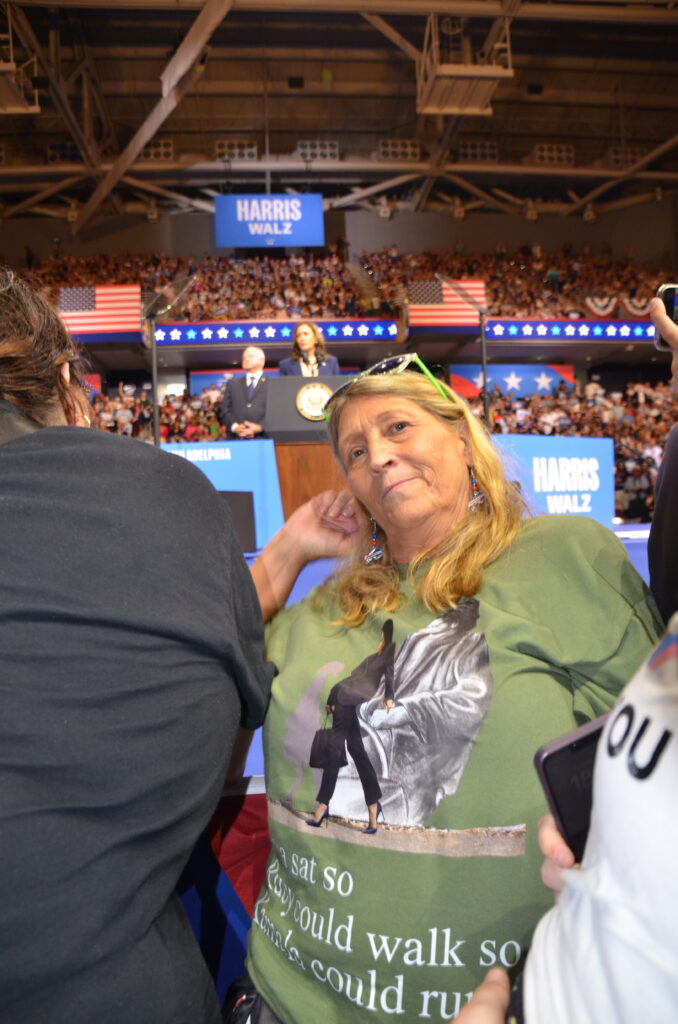
The Harris campaign clearly recognized the appeal of the positive message embodied by Tim Walz when making their choice. With a gleam in his eye, Walz highlighted the strengths he brings to the ticket, saying, “Minnesota’s strengths come from our values, our commitment to working together. To see past our differences and always be willing to lend a helping hand.”
Walz further elaborated, stating, “In Minnesota, we respect our neighbors and the personal choices that they make.” These are precisely the qualities the Harris campaign hoped to showcase with Walz. A joyful, spirited, energetic, and commanding presence, Walz drew on his background as a football coach and classroom teacher, rousing the crowd toward the end of his speech by declaring that in Minnesota, “There’s a golden rule: mind your own damn business!”
This strategy is already a key part of the campaign, which believes it can secure victory by leveraging Walz’s attractive personality traits. The campaign is currently enjoying a honeymoon period with positive media coverage and increased scrutiny of the Republican ticket.
In essence, the choice of Walz appears to achieve the campaign’s goals. It helps create a narrative that Democrats are empowered and gaining momentum. The perception is that Harris deliberately avoided selecting a moderate governor from a swing state, like Shapiro, or an astronaut from a border state, like Kelly, because those options weren’t bold enough. Instead, she chose a governor who can be known as coach, sergeant major, dad, teacher—or perhaps Vice President. That’s the bold strategy Harris is banking on.
But be careful, Walz has taken an unkind approach in his «vibes» offensive by labeling Republican Vice-Presidential nominee J.D. Vance and Republicans in general as «weird.» «I’ve got to tell you; I can’t wait to debate the guy. These guys are creepy and, yes, just weird as hell,» Walz said about Vance.
While Walz’s use of the term «creepy» might resonate more appropriately than «weird,” there are potential pitfalls. People with certain conditions, such as those on the autism spectrum and their loved ones, might feel targeted by such language. Additionally, continuing to use «weird» could backfire for a party that many rural and middle-class Americans already perceive as «weird» due to its support of LGBTQ+ policies in schools.
The Harris campaign’s bold choice of Walz as running mate reflects a strategic move to energize their base and differentiate themselves from the Republican ticket. However, Harris is acutely aware that her base alone may not be enough to secure victory against Trump. To win, the campaign must go beyond its traditional supporters and reach out to new demographics, particularly those who have historically been disengaged from the political process.
This includes convincing young voters who must be registered and will be voting for the first time—many of whom are Latino. Engaging these voters is crucial, as they represent a growing and influential demographic that could tip the scales in a tight race. The Harris-Walz ticket also needs to inspire the undecided voters, who are often skeptical.
Harris hopes to build a coalition broad enough to overcome the challenges Trump’s fervent base poses. The campaign’s success will hinge on its ability to mobilize the new, undecided, and independent voters, transforming them into powerful forces at the polls.



